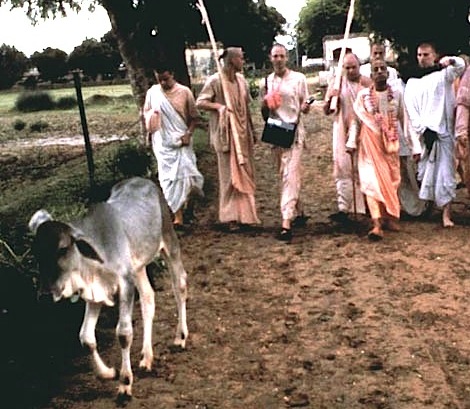Winter is a prime time for diseases to flourish in cows. Cows have no difficulty handling snow, but rain is the biggest enemy of cows during winter. A goshala provides excellent protection against excessive wetness, but it must be well-ventilated to avoid trapping ammonia which can lead to respiratory problems like pneumonia.
Cows barns need heat in the winter. Our neighbouring Govardhana Goshala recently insulated the barn, keeping in body heat, but this prevents fresh air from entering. There are plans to build an external wood stove and to pump heat (via water pipes) into the goshala.
Foot health is also an issue in winter. Cows on pasture typically have fewer foot problems than cows housed on concrete. However, the goshala has a concrete floor and the cows spend most of the day inside in the winter.
It is bad for health to drink cold water on cold days. Drinking Water in buckets is already frozen by sundown, even buckets in the barn are frozen at the top by sundown. We dissolve gur/jaggary into warm water and offer to the cows. The gur tea is brought at sundown and drank as soon as its poured.
 The good news about winter is that insects no longer pose a problem to cows.
The good news about winter is that insects no longer pose a problem to cows.
In the middle of winter, the ground is frozen and covered with snow so cows can't graze.
Srila Prabhupada wrote in a letter, “We must be able to grow our own fodder for the cows. We don't want to have to purchase food for cows outside from some other party."
We are now purchasing hay from outside our community, but we must grow crops for feeding cows in the winter.
